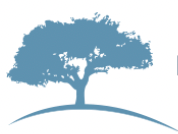The Pitfalls of Transfer-On-Death Deeds
May 13 2025 17:29
California’s revocable Transfer‑On‑Death deed (RTODD) was designed as a quick, low‑cost way to pass a home outside probate, but its simplicity hides a long list of traps: it only works for certain homes, is void if your beneficiary dies first, can still be clawed back by creditors or Medi-Cal, and often leaves heirs facing title‑insurance delays or litigation. By contrast, a well‑drafted revocable living trust can handle multiple assets, name backups, manage incapacity, and keep your plan private—usually for less overall cost and hassle in the long run. Below we unpack the most common RTODD pitfalls and explain why most California families ultimately benefit from a living trust.
What Is a Revocable Transfer‑On‑Death Deed?
A RTODD lets a homeowner record a deed that names a beneficiary to receive the property automatically at death, without probate. The instrument was created by Assembly Bill 139 in 2016 and is now found in Probate Code §§5600‑5698, with the pilot program extended to 2032 and amended to require two witnesses and recording within 60 days of signing.
Hidden Pitfalls California Homeowners Should Know
- Narrow Property Eligibility:
Because an RTODD can transfer only certain owner‑occupied residences, any rental units, LLC‑held property, or second homes must still go through probate or another plan.
- No Contingent Beneficiaries:
The statute allows only primary beneficiaries; if that person dies before you—and no new deed is recorded—the property drops into probate.
-
Beneficiary Must Survive You:
If the named beneficiary fails to outlive you by 120 hours, the deed is void and probate is required.
-
Creditor Liability & Medi-Cal Claw-Back:
Probate Code Sections §§ 5670‑5678 leave RTODD property exposed. Although recorded liens stay first in line, unsecured debts follow the beneficiary, who is personally liable up to the home’s net equity. If a probate is opened for other estate assets, the personal representative may hold the beneficiary of a RTODD personally liable for a share of the transferor’s unsecured debts. Furthermore, Medi‑Cal can still seek recovery against the home because RTODD property is expressly subject to estate claims under current regulations.
-
Title‑Insurance & Refinancing Delays: Many title companies refuse to insure or finance the property for some time after the owner’s death, fearing creditor contests or elder‑abuse claims. That can leave your heirs unable to sell or refinance when they need cash most.
-
Strict Signing Formalities: A missed witness signature, recording outside the 60‑day window, or an incorrect legal description may invalidate the deed, thrusting the property into probate.
-
Joint‑Ownership Conflicts: If the home is held in joint tenancy or community property with right of survivorship, the survivorship rules override the RTODD, making the deed worthless.
-
Sunset & Legislative Uncertainty: The entire statute expires on January 1, 2032, unless extended again, so deeds recorded now could become unusable if lawmakers let the law lapse.
-
Transfer Formalities: Upon the owner’s passing, beneficiaries must complete several formalities to transfer title, including notifying all potential heirs and allowing them the opportunity to contest the RTODD.
-
Elder‑Abuse & Fraud Concerns: Law‑revision commissioners noted that RTODDs are easy to abuse because they need no attorney review and are often signed late in life, when capacity questions are common.
Benefits of Choosing a Revocable Living Trust
A revocable living trust can hold virtually any asset—your personal residence, rentals, bank and brokerage accounts, business interests, and even out‑of‑state real estate—so your entire estate is managed under one integrated document, whereas an RTODD can transfer only a single California residence. If everything is already retitled in the trust, those assets pass to heirs privately and without probate, avoiding months of court delay and the statutory fees that accompany a will or a failed RTODD.
The trust framework lets you list contingent beneficiaries and amend them whenever life changes, guaranteeing the plan still works if a primary heir predeceases you. It also provides built‑in incapacity protection: if you become ill, the successor trustee can step in immediately to manage, refinance, or sell trust assets without the cost and publicity of a court conservatorship.
Finally, title companies routinely insure or refinance trust‑owned property right after a death, while many refuse to touch RTODD parcels during the creditor‑claim window. Unlike RTODDs, revocable living trusts are not subject to Medi-Cal recovery, and trusts remain private instruments that are unaffected by the 2032 sunset looming over the RTODD program.
How Pederson Law Offices Can Help
Our firm prepares custom revocable living trusts tailored to your family, integrates incapacity planning, and can assist with both in state and out of state real property transfers into the trust—so your loved ones inherit smoothly and privately. If you already recorded an RTODD, we can audit it for compliance, revoke it if appropriate, and retitle the home into a trust without jeopardizing your property‑tax base.
Please note: This blog post is for informational purposes only and does not constitute legal advice or create an attorney-client relationship. Consult with a qualified attorney at Pederson Law Offices for advice on your specific circumstances.

